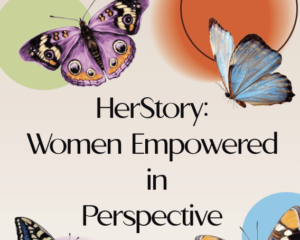by The Cowl Editor on April 15, 2021
Campus

by Savannah Plaisted ’21 and Nicole Patano ’22
Opinion Editor and Asst. Copy Editor
Before Easter break, The Cowl had the opportunity to interview members of Women Empowered’s executive board and discuss the importance of the club’s presence on Providence College’s campus.
Women Empowered was founded in 2012 to give a space to women of color on campus in which they can unapologetically be themselves. According to current president, Talysha Rivera ’21, the main goals of Women Empowered are “to create a support group for women of color on campus and to be an advocacy group for women on campus.”
The group serves as a safe space for women of color at the College and allows for open discussion in order for voices that are frequently marginalized to be heard. One of the biggest successes of Women Empowered is the community and sisterhood that the members create. At the start of each Women Empowered meeting, members have time to talk about how they are feeling and how their week was. “I don’t think anyone comes in with negative energy,” said Ekua Boakye-Mensah ’22, vice president of Women Empowered. “You leave your problems at the door.”
While Women Empowered is typically a member club of the Board of Multicultural Student Affairs, at the beginning of last semester, the executive board decided to take a break from BMSA to devote their attention to Women Empowered. This decision mainly came in response to the events of last summer, including the murders of George Floyd and Breonna Taylor. Rivera explained, “At that time, we were all really drained with continuously speaking, and it felt like a time to be there for each other rather than speak out.” Rivera and Boakye-Mensah emphasized that it is not the responsibility of Women Empowered to educate people now, when they are ready to listen, because the group has been doing it for years with little support or thanks.
Women Empowered’s decision to leave BMSA allowed the club to better support and empower its members, which has always been its main goal. Nicola Calabrese ’22, one of the club’s public relations coordinators, stated that Women Empowered has “definitely always been for ourselves and our own journey.” Expanding on this, Boakye-Mensah commented, “Within our own club, I can definitely say we make a difference…but when I was in BMSA and these other spaces where people ask us to come and speak, it just feels like we’re just there as a demographic.”
There is a large mental health component to Women Empowered that makes it a necessary space on campus for women of color. “Because PC is a PWI [predominantly white institution],” Calabrese shared, “you’re surrounded by people who may not look like you or experience the same things that you do, so it’s nice to be centered and be surrounded by people who are feeling similar things that you are.” Rivera added, “It’s just a good feeling to feel that you can have a space to speak your truth and not feel judged.”
In addition to their weekly meetings, the events which Women Empowered organizes provide a space for women of color to express themselves unapologetically. In previous years, Women Empowered hosted a retreat for women of color entering PC in order to provide them with a welcoming environment early on in their college experience. Despite the COVID-19 pandemic, Women Empowered has continued to be a source of sisterhood for many of the women of color on campus.
Two major events that Women Empowered holds annually are Naturalista and Herstory. According to Rivera, Naturalista is “a way of supporting Black-owned businesses while also embracing natural hair products and the natural beauty of women of color that doesn’t fit into the standard of what being beautiful is.” The event includes a barber, henna, eyebrow threading, and holistic care products for women of color. PC students can even sell their own products, such as swimwear and artwork.
This year, Herstory was held from March 8-12 in the Slavin overlook lounge. The event was titled “Herstory: Women Empowered in Perspective” and included personalized images of women of color on campus with biographies that included how the women understand the world around them. Explaining the significance of Herstory, Calabrese said, “[It] showcases the people who might feel like they’re overshadowed on campus, so it gives them the spotlight.”
As a club specifically for women of color at a predominantly white institution, Women Empowered has been intentionally and inadvertently belittled, invalidated, and ignored by members of the PC community. After years of fighting for an office space, Women Empowered was finally granted one in Slavin, but Calabrese describes the room as a “closet-looking thing with no windows.” Women Empowered’s events are also not widely publicized or attended by the College, unlike many other clubs on campus.
Despite these challenges, Women Empowered continues to be a force to be reckoned with. “We’re a group of bad bitches,” said Rivera. “Even though our voices aren’t heard…we still find the power and resilience to stand up for ourselves.”
Rivera, Boakye-Mensah, and Calabrese are not disheartened by the obstacles they encounter. Boakye-Mensah knows that “for us to have our space and for us to be on the front lines, is just going to encourage other generations.”
Women Empowered meets weekly on Wednesdays at 8 p.m. over Zoom. Meeting information can be found on the club’s Instagram page, @womenempowered_pc.